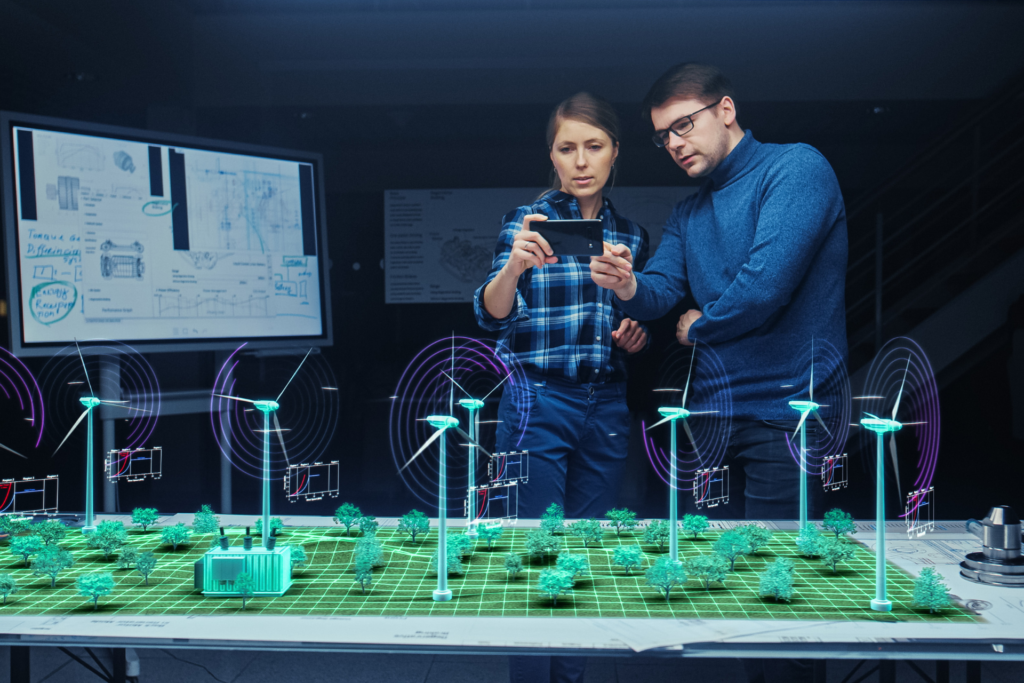Sustainability has become a major talking point and priority across every profession, including engineering. Industry leaders have found it increasingly important to fill the talent gap in sustainable engineering by sourcing qualified and certified candidates for specialized sustainability engineer roles.
These specialists possess the engineering skills and knowledge to navigate companies’ climate challenges, including the strategic use of renewable energy. MRINetwork highlights the various types of sustainability engineering roles, their professional contributions, and how you can identify the most suitable candidates in the age of sustainability.
What Are the Sustainability Issues in Engineering?
Engineering companies constantly juggle profitability challenges while ensuring sustainability across every stage of the developmental lifecycle. With the rapid development and scaling of modern technology, the impact of engineering has become a growing concern in multiple sectors, including the tech industry.
Ongoing climate changes and resource depletion woes have made it integral for industry decision-makers to rethink and adapt their engineering processes. These would include a thorough look at societal demands and concerns and a close alignment with existing safety standards and guidelines. Corporations need to examine every stage of the project life cycle to optimize product design efficiencies while reducing the adverse environmental impacts of manufacturing processes.
These sustainability shifts require companies to hire engineers with the expertise needed to take a more proactive approach to safeguarding the environment. These efforts include minimizing carbon footprints and exploring more eco-friendly processes, such as green coding, catering to each phase of the digital life cycle.
What Engineering Roles are in Demand for Greener Initiatives?
While the engineering field could collectively shift toward a low-emission and green economy, we have identified the following roles as major movers during the transition.
Civil Engineers
Civil engineers build and maintain eco-friendly infrastructures based on changing societal demands. Their duties include routine testing of existing private and public structures to ensure they comply with sustainability standards. One major aspect of civil engineering involves assessing a project’s economic feasibility and safety, including its environmental impact. Civil engineers make an average of $90,147 a year in the US.
Green Building Engineers
Green building engineers specialize in managing the planning and development of eco-friendly structures with a minimal carbon footprint. Engineers with green-building expertise continuously explore renewable and resource-efficient solutions. These help organizations reduce their projects’ negative environmental impact with construction techniques prioritizing water efficiency and indoor air quality. Green building engineers have an average annual salary of $97,544 in the US.
Sustaining Engineers
A sustaining engineer typically oversees the sustainability of industrial processes. These specialized engineers maintain the cost-effectiveness of organizational objectives while optimizing resource management and minimizing pollution. In the United States, sustaining engineers earn an average of $109,659 annually, with additional remuneration (e.g., commissions and bonuses) amounting to an estimated $27,209.
Anticipated Skills For Sustainable Engineering
Aside from the greater demand for existing engineering roles, organizations could also look at new professions and competencies to cope with the latest environmental needs. Emerging engineering roles may involve the following sustainability practices.
Planet-centric Designs
It could soon become a norm for project managers and engineers to include a project factor in addition to cost, revenue, and profitability—design features that prioritize the planet’s future. Planet-centered product blueprints may include raising consumer awareness of environmental responsibilities and simpler processes that reduce wastage.
Project Management With Three Rs
The three Rs (reuse, reduce, and recycle) are instrumental in sustaining a circular economy. Industry leaders and governmental authorities could demand stricter practices of the three Rs within the engineering and product design chain with a greater focus on sustainability. Integrating the three Rs ultimately improves product durability and reduces wastage.
Strategic Material Selection
An engineer’s choice of material could require increased consideration as more companies focus on sustainability efforts. These detailed assessments would include an examination of a material’s degradability and performance toward achieving the highest safety and green standards. Material selection processes would also extend to packaging considerations. Engineering teams could standardize innovative, eco-friendly alternatives like bamboo and plantable seed paper.
Waste Management Analytics
Economic studies indicate a robust and steady waste management market growth into 2031. These suggest an incoming need for additional energy and waste analytics within the engineering sectors.
Organizations may see an uptick in demand for certified and qualified engineers with the relevant technical competencies for monitoring waste management data. These include access to specialized analytical software that unifies data for greater accountability and alignment with sustainability objectives. Innovative engineering teams could leverage the accuracy and scalability of IoT, AI, and machine learning to compile and interpret waste management research and competitor reports.
Key Takeaways
Sustainability seems set to become a mainstay in engineering, among other industries. Now is a critical period for your company to seek individuals with the necessary analytical skills and green specializations to help spearhead projects in an era of planet-first product strategies.
Ultimately, a synergy of smart waste management, renewable resource use, and creative problem-solving could help engineers overcome the most stringent environmental policies and regulations of tomorrow.
